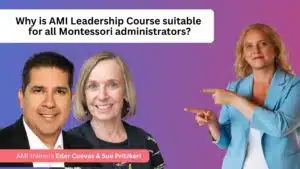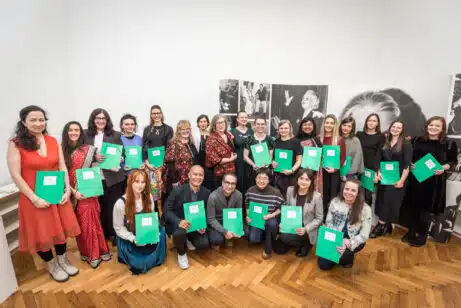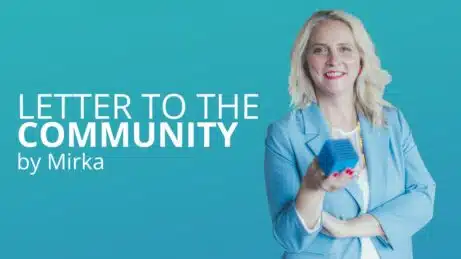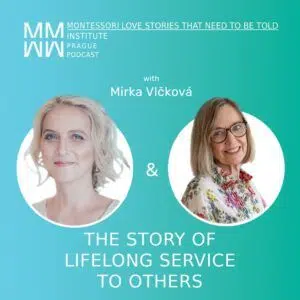Why is AMI Leadership Course suitable for all Montessori administrators?

Running a Montessori school today is more complex than ever. Montessori guides are deeply engaged with children and parents, while at the same time schools grow, regulations change, and new challenges like the digital and AI era keep coming.
That is why Montessori school leaders matter – and why the AMI Montessori School Leadership Course was created.
Montessori leaders see the whole picture
As Sue Pritzker shares in the conversation, there was a time when people thought teachers alone could “do it all”. With today’s growth of Montessori, this is no longer realistic.
Teachers focus on what is happening between the child and the guide.
Leaders make sure:
-
the school keeps its Montessori mission alive in everyday decisions,
-
communication between staff, parents, and the wider community works,
-
financial, legal and organizational questions are handled with care,
-
someone constantly holds the big picture of the whole school.
Without prepared leaders, even the best classrooms struggle to thrive.
A course for all types of Montessori administrators
Sue and Eder describe the AMI Montessori School Leadership Course as both global and very practical:
-
It supports small new schools in underserved communities, and
-
large, established schools that need networking and shared wisdom.
Because it is a certificate course, there are no heavy prerequisites. It is suitable if you:
-
are a Montessori-trained guide stepping into leadership,
-
are a principal or administrator newly responsible for a Montessori school,
-
lead a school with multiple levels (0–3, 3–6, 6–12, adolescents) and need a unified vision.
-
need a solid foundation in Montessori pedagogy in your leadership role,
-
want to develop strategic thinking (structures, planning, alignment with AMI Global School Accreditation),
-
are interested in very practical ideas – from how to observe classrooms as a leader to how to communicate strategy with your staff instead of “keeping it just in your own head”.
You are not meant to do this alone
Both trainers emphasize one essential point:
many leaders feel lonely — but they shouldn’t.
In the course, participants:
-
connect with leaders from around the world,
-
share real problems and real solutions,
-
leave with a network that continues long after the course finishes.
As Eder says, this work is too important to carry alone.
As Sue adds, the real “revolution” still happens one child and one adult at a time – but leaders need a community to sustain that work.
Watch/listen Sue Pritzker & Eder Cuevas in this Montessori leadership podcast episode
If you are a Montessori school director, founder, or administrator – or if you aspire to become one – the AMI Montessori School Leadership Course offers exactly the kind of support, structure, and inspiration described in this podcast.
Learn more and register for the upcoming Montessori School Leadership Course






